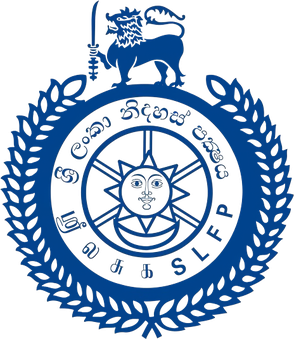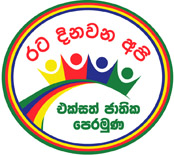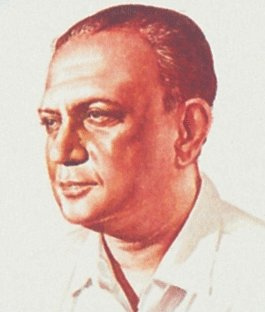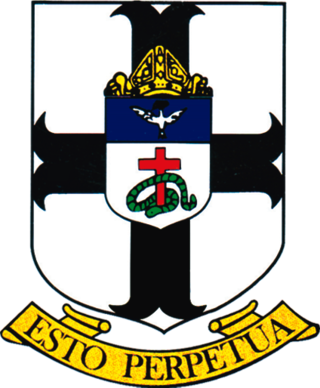
The history of Sri Lanka is unique because its relevance and richness extend beyond the areas of South Asia, Southeast Asia and the Indian Ocean. The early human remains which were found on the island of Sri Lanka date back to about 38,000 years ago.

Sri Lankabhimanya Ranasinghe Premadasa was the third President of Sri Lanka from 2 January 1989 until his assassination in 1993. He also served as Prime Minister of Sri Lanka from 6 February 1978 to 2 January 1989. This makes Premadasa the longest-serving uninterrupted Prime Minister of Sri Lanka, having served in the post for nearly 11 years. He was the first person to be conferred with Sri Lanka's highest civilian award, the Sri Lankabhimanya in 1986 by President J. R. Jayewardene.

The United National Party is a centre-right political party in Sri Lanka. The UNP has served as the country's ruling party, or as part of its governing coalition, for 38 of the country's 74 years of independence, including the periods 1947–1956, 1965–1970, 1977–1994, 2001–2004 and 2015–2019. The party also controlled the executive presidency from its formation in 1978 until 1994.

Sirima Ratwatte Dias Bandaranaike, commonly known as Sirimavo Bandaranaike, was a Sri Lankan politician. She was the world's first female prime minister when she became Prime Minister of Sri Lanka in 1960. She chaired the Sri Lanka Freedom Party (SLFP) from 1960 to 1994 and served three terms as prime minister, two times as the chief executive, from 1960 to 1965 and from 1970 to 1977, and once again in a presidential system from 1994 to 2000, governing under the presidency of her daughter Chandrika Kumaratunga.

Junius Richard Jayewardene, commonly abbreviated in Sri Lanka as J.R., was a Sri Lankan lawyer, Public official and a statesman who served as Prime Minister of Sri Lanka from 1977 to 1978 and as the second President of Sri Lanka from 1978 to 1989. He was a leader of the nationalist movement in Ceylon who served in a variety of cabinet positions in the decades following independence. A longtime member of the United National Party, he led it to a landslide victory in 1977 and served as prime minister for half a year before becoming the country's first executive president under an amended constitution.

Solomon West Ridgeway Dias Bandaranaike, also known as "The Silver Bell of Asia", was a Ceylonese statesman who served as the fourth Prime Minister of the Dominion of Ceylon, serving from 1956 until his assassination. The founder of the left-wing and Sinhalese nationalist Sri Lanka Freedom Party, his tenure saw the country's first left-wing reforms.

The Sri Lanka Freedom Party is one of the main political parties of Sri Lanka. It was founded by S. W. R. D. Bandaranaike in 1951 and has been one of the two largest parties in the Sri Lankan political arena since. It first came to power in 1956 and has served as the predominant ruling party on a number of occasions. It is currently the third largest party in the Parliament of Sri Lanka after the Sri Lanka Podujana Peramuna and the Samagi Jana Balawegaya.

The United National Front (UNF), later the United National Front for Good Governance (UNFGG), was a political alliance in Sri Lanka led by the United National Party.

Dudley Shelton Senanayake, was a Sri Lankan statesman who served as Prime Minister of Ceylon from 1952 to 1953, in 1960, and from 1965 to 1970 and Leader of the Opposition from 1960 to 1964. Senanayake's tenures as prime minister were associated with democratic policies focused on agricultural and educational reforms with a pro-western alignment.

General Sir John Lionel Kotelawala was a Sri Lankan statesman, who served as the 3rd Prime Minister of Ceylon from 1953 to 1956.

Sri Lankabhimanya Karu Jayasuriya is a Sri Lankan politician. He was the Speaker of the Parliament of Sri Lanka. Previously he was Mayor of Colombo from 1997 to 1999, Minister of Power and Energy from 2001 to 2004, Minister of Public Administration and Home Affairs from 2007 to 2008, and Minister of Buddha Sasana, Public Administration, and Democratic Governance in 2015. He has served as Chairman of the Leadership Council of the United National Party (UNP), as well as Deputy Leader of the UNP. He is a member of parliament representing the Gampaha District since 2001. He had served as Sri Lanka's Ambassador to (Germany). As Speaker of Parliament, he also acts as Chairman of the Constitutional Council.

Maithripala Senanayake was a Sri Lankan politician and Governor of the North-Central province. He first studied at St. Joseph's College, Anuradhapura then at St. John's Jaffna, where he attained a mastery in the Tamil Language and later at Nalanda College Colombo.
The Prime Minister's Office is a ministry of the Government of Sri Lanka. It provides the administrative and institutional framework for the exercise of the duties and responsibilities vested in the Prime Minister of Sri Lanka. From 1947 to 1978 it was the most powerful office within the government. However, after the creation of the executive presidency in 1978 the post of Prime Minister became more or less nominal and functions as a deputy to the President, with a few exceptions.

S. Thomas' College, Gurutalawa is a private Christian school situated in Gurutalawa, in the Uva Province of Sri Lanka. It is an Anglican school administered by the Church of Ceylon.

The Prime Minister of the Democratic Socialist Republic of Sri Lanka is the head and most senior member of parliament in the cabinet of ministers. It is the second-most powerful position in Sri Lanka's executive branch behind the president, who is the constitutional chief executive. The Cabinet is collectively held accountable to parliament for their policies and actions. The powers and functions of the Prime Minister has changed several times since the creation of the office in 1947.
Grama Niladhari is a Sri Lankan public official appointed by the central government to carry out administrative duties in a grama niladhari division, which is a sub-unit of a divisional secretariat. They come under the Grama Niladhari Division under the Home Affairs Division of the Ministry of Home Affairs. There are 14,022 grama niladhari divisions under 331 divisional secretary’s division in the island.
Charles Percival de Silva was a Sri Lankan politician and civil servant. He had served as the Minister of Finance, Minister of Lands, Land Development and Agriculture; and Minister of Power and Irrigation, and Chairperson of the Sri Lanka Freedom Party, and later joined as a senior member of the United National Party.

Cyril Esmond Lucien Wickremesinghe was a Ceylonese press baron, lawyer, and a successful entrepreneur. He also played key role in defeating Sirimavo Bandaranaike that brought United National Party's Dudley Senanayake to power in 1965's Parliamentary Election. He was also father of President of Sri Lanka and Leader of the UNP Ranil Wickremesinghe.

Israel–Sri Lanka relations refers to the bilateral relations between Israel and Sri Lanka.
Pararajasingam "Park" Nadesan, was a Ceylonese civil servant. He was the Secretary to the Prime Minister of Ceylon.















